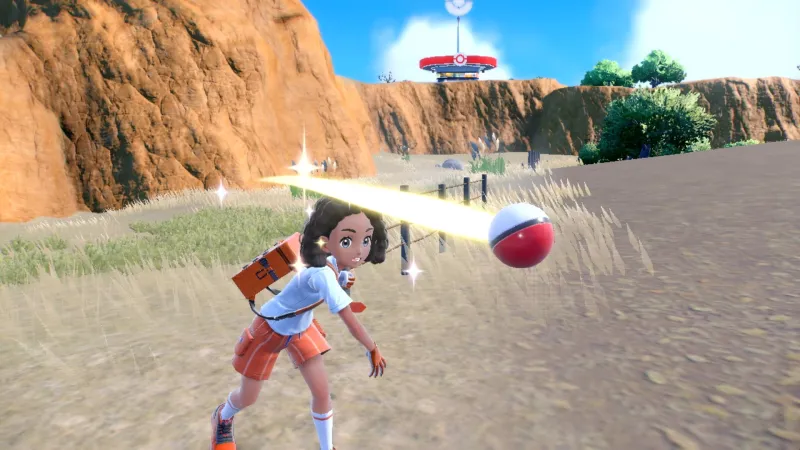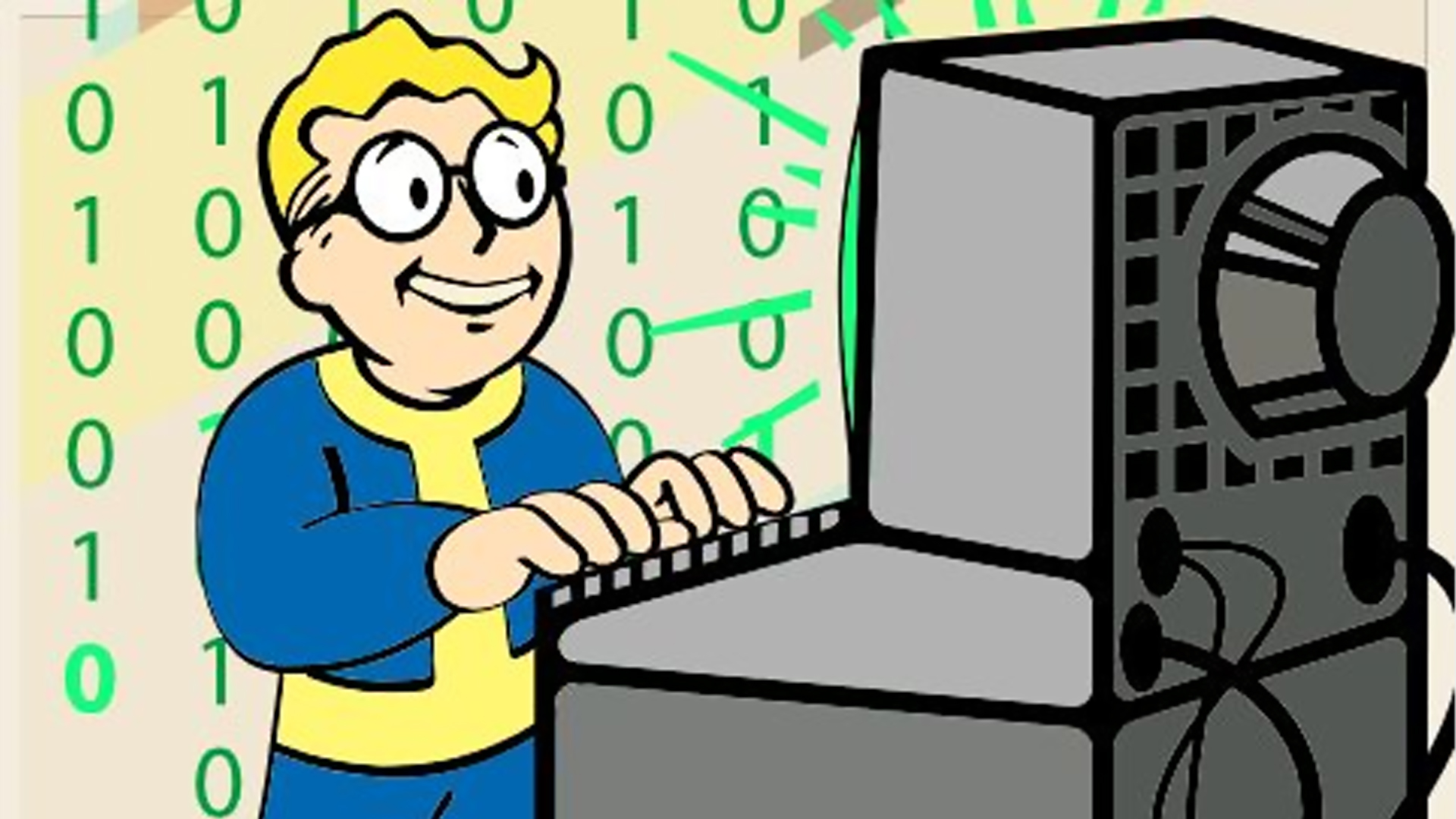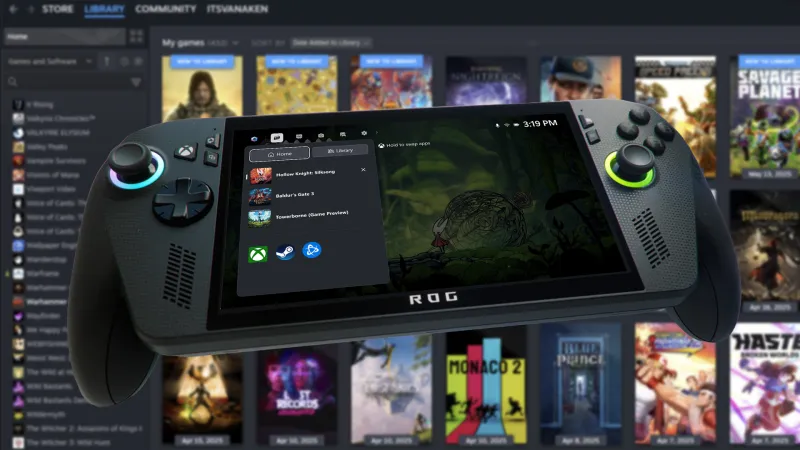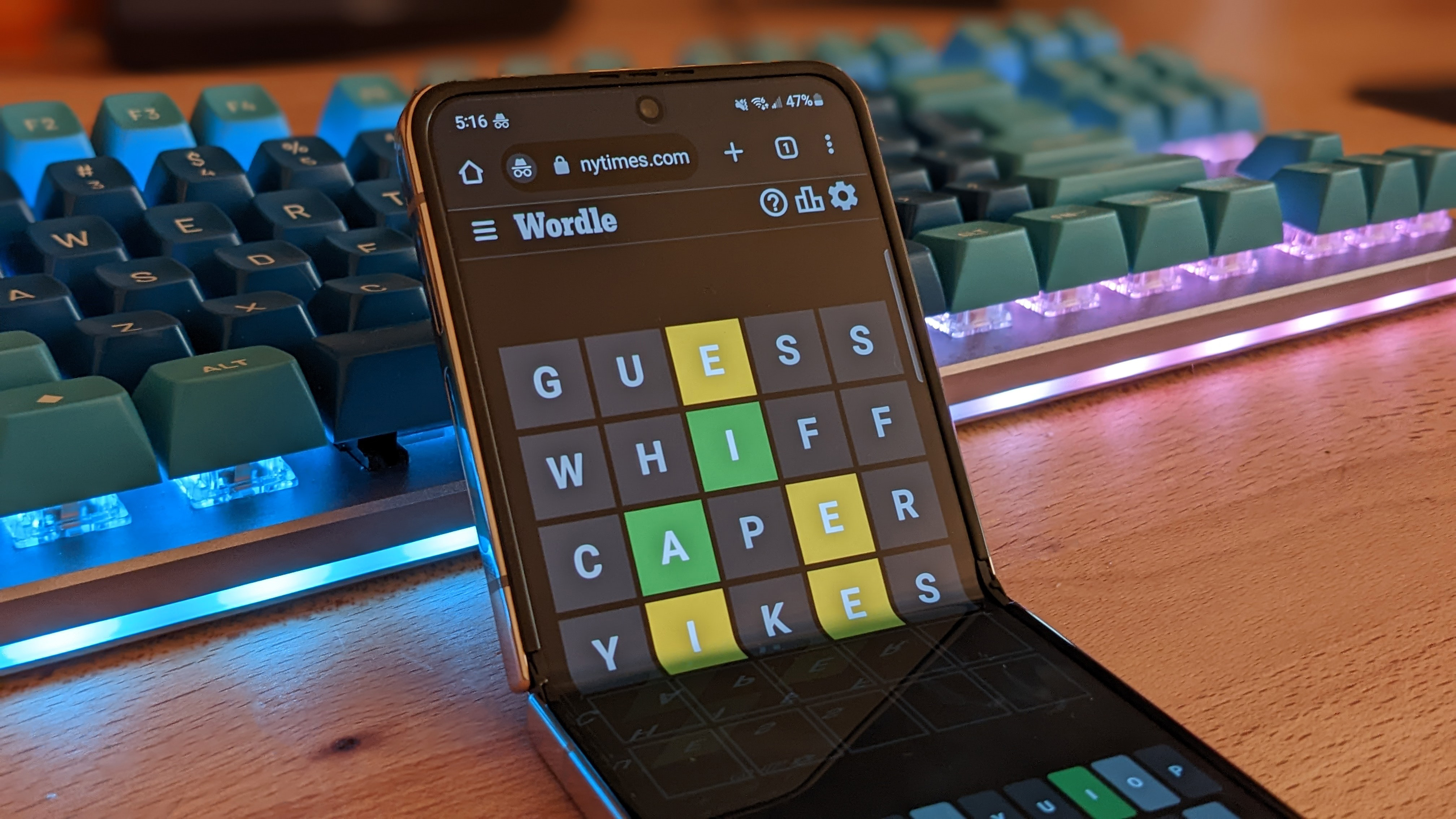
Pokémon Scarlet and Violet hit store shelves and the Switch eShop tomorrow. Chances are, you're seeing some reviews pop up right about now. While we would love to be one of those reviews, we're not quite ready to publish our final verdict for a couple of reasons. First, the online servers are not yet available, and with four-player co-op serving as a big addition to the series, we want to fully test it out before delivering our review. I also just want a tad more time with the game before slapping a score on it; I've finished most of the main story, but I haven't fully explored the end and post-game content. However, now that the review embargo is up, I can provide my full impressions before publishing my final review. I'm generally positive about Pokémon Scarlet and Violet. These are good mainline Pokémon games that take the series forward in some pretty substantial ways. The open world is fun to explore, and I appreciate being able to tackle things in (generally) whatever order I want. I've been enjoying my time in the Paldea region, aided immensely by the traversal abilities of Koraidon and Miraidon. Each area features a ton of monsters to battle and catch, giving me ample reason to go off the beaten path, and the new Pokédex design makes it more satisfying than ever to fill it out. Unfortunately, the studying aspect, introduced in Legends: Arceus earlier this year, is gone. Now, the Pokédex entries are complete upon catching the Pokémon – no observing them performing certain moves or other requirements. For some longtime fans and purists, that will be a good thing, but I thought that convention from Legends: Arceus was a neat evolution. Pokémon battles out in the world are now optional. Yes, you still can battle other trainers to your heart's content, but encounters in the big open areas are initiated by the player rather than any NPC you happen to walk in front of. Of course, there are several reasons why you'd still want to battle NPCs; in addition to experience and money, you can also speak to a Pokémon League representative at most Pokémon Centers to receive a reward when you defeat a set number of trainers in the adjacent area. Wild Pokémon battles are also mostly optional, as random encounters in tall grass are completely a thing of the past; now, you simply see Pokémon grazing out in the wild, and you make the decision to engage with them – unless, of course, you accidentally run into them, which is easier than it should be thanks to technical problems (more on that later). If you want, you can simply send out your partner Pokémon using the new Let's Go mechanic for an auto-battle. This is useful for defeating meddlesome wild Pokémon that are in the way, taking down Team Star bases, and collecting materials for TM crafting. Once you're in a battle, you have the option to Terastallize. While Pokémon look uniformly goofy in their Terrastallized forms, this is perhaps my favorite battle gimmick to date. Unlike X and Y's Mega Evolutions, Sun and Moon's Z-Moves, and Sword and Shield's Dynamaxing, Terrastallization is far from a "click-to-win" mechanic. While it has the potential to change the course of a battle thanks to its ability to shift the type of your Pokémon and power up that set of moves, you need to be much more strategic with your timing and implementation of this gimmick. Terrastlization only works once in between visits to the Pokémon Center, so if you blow it before a moment in which you truly need it, you're out of luck. Gym battles offer up a new requirement before you can take on the leader in Gym Challenges. These require you to complete a small task around the town before you can earn the right to face the gym leader. While some of these are enjoyable, they often feel like padding added in for the sole purpose of giving us something to do aside from battling a gauntlet of trainers in the lead-up to a gym battle (though some of them just boil down to battling a gauntlet of trainers). The new Pokémon designs are largely strong; a few even made me gasp or laugh out loud. I can't go into specifics, but one particular new design made me sit up and say, "No way!" The designs of new creatures in recent generations have been very hit or miss for me, but the new Pokémon featured in Scarlet and Violet are mostly great. For those wanting to see their favorites from past generations pop up, Scarlet and Violet do a solid job of bringing both classic and deep-cut Pokémon spread across various previous generations. The mission structure is the most freeing we've ever seen in a mainline Pokémon game. Being able to tackle the three mainline quests in any order is refreshing, but there's a definite order in which Game Freak wants you to play. For instance, if you skip all the Titan and Team Star bases in order to focus solely on the gyms, you'll be way too over-leveled for several of the other missions. Similarly, if you don't do the gym battles and instead focus on other quests, you won't be able to make Pokémon of an appropriate level for those Titan encounters and base raids reliably obey you. The game does seem to level with you to an extent, but there are a couple of times when I ran into a buzzsaw of a Gym Leader that was of a higher level than me – thankfully, the description on the map typically gives you a good indication of what time in your journey it recommends you tackling that gym. I appreciate the way these mission chains all feed into one another, but they are also somewhat restrictive in that way. Unfortunately, this is perhaps the least technically sound a mainline Pokémon game has ever been. In Legends: Arceus, I criticized pop-in and low-resolution textures, but Scarlet and Violet are even worse in that regard. Add in a chugging FPS (particularly when you're in a big water area with several Pokémon) and characters phasing in and out of existence as you run through the world, and this is clearly something Game Freak hasn't quite figured out. I hope they learn how to create large, open spaces that run well on the Switch prior to the next Pokémon game to use that convention. Again, I'm overall positive about Pokémon Scarlet and Violet, and I'm excited about the future of the franchise thanks to this game. However, the format still requires fine-tuning, and Game Freak has a long way to go to prove it can create technically proficient open-world games on Switch. Regardless of its shortcomings, I've had a good time playing through Pokémon Violet, and I'm excited to continue my journey through the Paldea region. Look for my full review on GameInformer.com in the coming days!
Pokémon Scarlet and Violet hit store shelves and the Switch eShop tomorrow. Chances are, you’re seeing some reviews pop up right about now. While we would love to be one of those reviews, we’re not quite ready to publish our final verdict for a couple of reasons. First, the online servers are not yet available, and with four-player co-op serving as a big addition to the series, we want to fully test it out before delivering our review. I also just want a tad more time with the game before slapping a score on it; I’ve finished most of the main story, but I haven’t fully explored the end and post-game content.
However, now that the review embargo is up, I can provide my full impressions before publishing my final review. I’m generally positive about Pokémon Scarlet and Violet. These are good mainline Pokémon games that take the series forward in some pretty substantial ways. The open world is fun to explore, and I appreciate being able to tackle things in (generally) whatever order I want. I’ve been enjoying my time in the Paldea region, aided immensely by the traversal abilities of Koraidon and Miraidon. Each area features a ton of monsters to battle and catch, giving me ample reason to go off the beaten path, and the new Pokédex design makes it more satisfying than ever to fill it out.
Unfortunately, the studying aspect, introduced in Legends: Arceus earlier this year, is gone. Now, the Pokédex entries are complete upon catching the Pokémon – no observing them performing certain moves or other requirements. For some longtime fans and purists, that will be a good thing, but I thought that convention from Legends: Arceus was a neat evolution.
Pokémon battles out in the world are now optional. Yes, you still can battle other trainers to your heart’s content, but encounters in the big open areas are initiated by the player rather than any NPC you happen to walk in front of. Of course, there are several reasons why you’d still want to battle NPCs; in addition to experience and money, you can also speak to a Pokémon League representative at most Pokémon Centers to receive a reward when you defeat a set number of trainers in the adjacent area.
Wild Pokémon battles are also mostly optional, as random encounters in tall grass are completely a thing of the past; now, you simply see Pokémon grazing out in the wild, and you make the decision to engage with them – unless, of course, you accidentally run into them, which is easier than it should be thanks to technical problems (more on that later). If you want, you can simply send out your partner Pokémon using the new Let’s Go mechanic for an auto-battle. This is useful for defeating meddlesome wild Pokémon that are in the way, taking down Team Star bases, and collecting materials for TM crafting.
Once you’re in a battle, you have the option to Terastallize. While Pokémon look uniformly goofy in their Terrastallized forms, this is perhaps my favorite battle gimmick to date. Unlike X and Y’s Mega Evolutions, Sun and Moon’s Z-Moves, and Sword and Shield’s Dynamaxing, Terrastallization is far from a “click-to-win” mechanic. While it has the potential to change the course of a battle thanks to its ability to shift the type of your Pokémon and power up that set of moves, you need to be much more strategic with your timing and implementation of this gimmick. Terrastlization only works once in between visits to the Pokémon Center, so if you blow it before a moment in which you truly need it, you’re out of luck.
Gym battles offer up a new requirement before you can take on the leader in Gym Challenges. These require you to complete a small task around the town before you can earn the right to face the gym leader. While some of these are enjoyable, they often feel like padding added in for the sole purpose of giving us something to do aside from battling a gauntlet of trainers in the lead-up to a gym battle (though some of them just boil down to battling a gauntlet of trainers).
The new Pokémon designs are largely strong; a few even made me gasp or laugh out loud. I can’t go into specifics, but one particular new design made me sit up and say, “No way!” The designs of new creatures in recent generations have been very hit or miss for me, but the new Pokémon featured in Scarlet and Violet are mostly great. For those wanting to see their favorites from past generations pop up, Scarlet and Violet do a solid job of bringing both classic and deep-cut Pokémon spread across various previous generations.
The mission structure is the most freeing we’ve ever seen in a mainline Pokémon game. Being able to tackle the three mainline quests in any order is refreshing, but there’s a definite order in which Game Freak wants you to play. For instance, if you skip all the Titan and Team Star bases in order to focus solely on the gyms, you’ll be way too over-leveled for several of the other missions. Similarly, if you don’t do the gym battles and instead focus on other quests, you won’t be able to make Pokémon of an appropriate level for those Titan encounters and base raids reliably obey you. The game does seem to level with you to an extent, but there are a couple of times when I ran into a buzzsaw of a Gym Leader that was of a higher level than me – thankfully, the description on the map typically gives you a good indication of what time in your journey it recommends you tackling that gym. I appreciate the way these mission chains all feed into one another, but they are also somewhat restrictive in that way.
Unfortunately, this is perhaps the least technically sound a mainline Pokémon game has ever been. In Legends: Arceus, I criticized pop-in and low-resolution textures, but Scarlet and Violet are even worse in that regard. Add in a chugging FPS (particularly when you’re in a big water area with several Pokémon) and characters phasing in and out of existence as you run through the world, and this is clearly something Game Freak hasn’t quite figured out. I hope they learn how to create large, open spaces that run well on the Switch prior to the next Pokémon game to use that convention.
Again, I’m overall positive about Pokémon Scarlet and Violet, and I’m excited about the future of the franchise thanks to this game. However, the format still requires fine-tuning, and Game Freak has a long way to go to prove it can create technically proficient open-world games on Switch. Regardless of its shortcomings, I’ve had a good time playing through Pokémon Violet, and I’m excited to continue my journey through the Paldea region. Look for my full review on GameInformer.com in the coming days!




